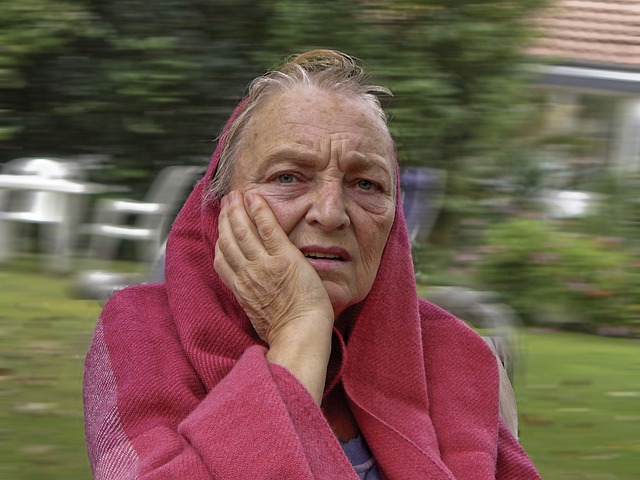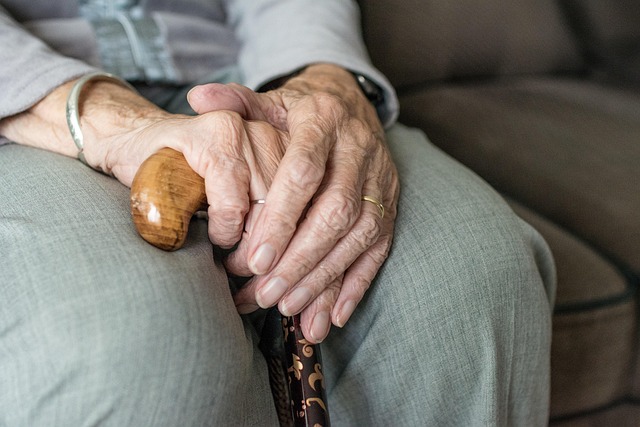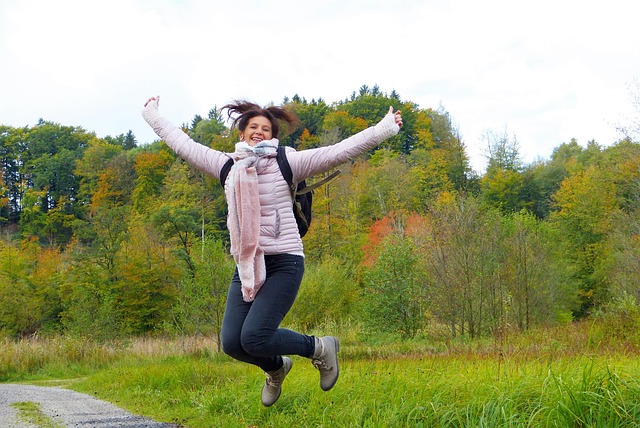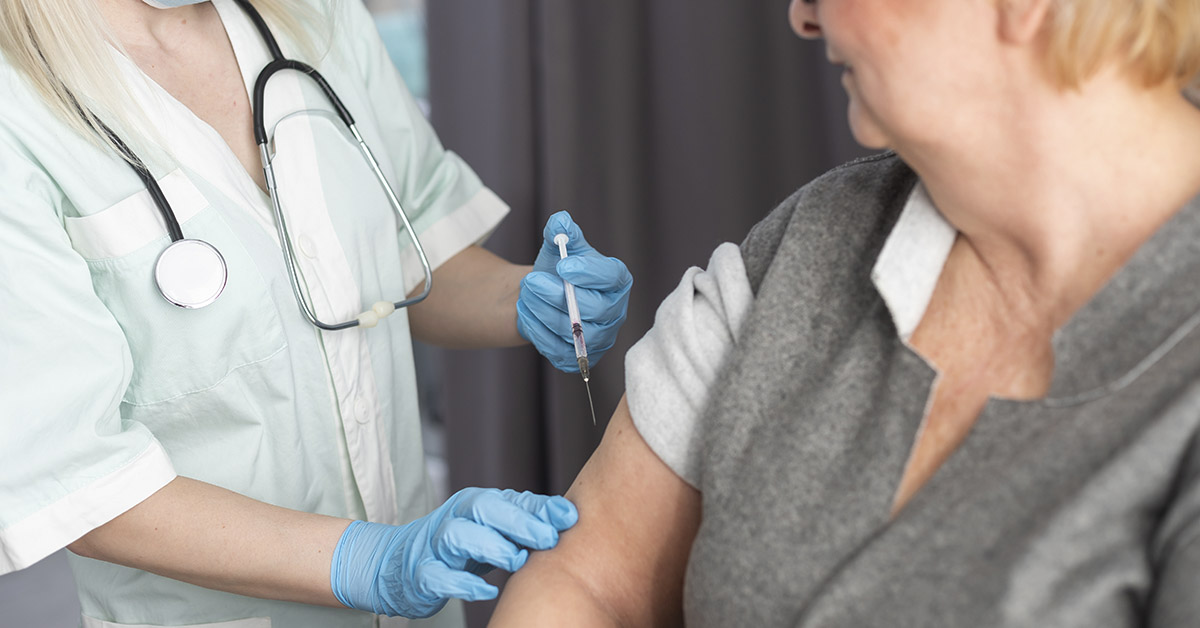Researchers recently discovered that older adults who had taken the shingles vaccine were 20% less likely to develop dementia in the following seven years. The study was led by Stanford Medicine and involved analyzing the health records of older adults in Wales. Published earlier this month in Nature, the study bolsters a new theory that viruses that impact the nervous system may increase dementia risk. If proven correct, these findings could open the door to new preventative interventions for dementia.
Shingles and Dementia

Shingles is caused by the same virus that causes chickenpox. Called the varicella-zoster virus, the viral infection results in a painful rash. You cannot get shingles unless you had chicken pox as a child. When you have chickenpox, your body fights the virus, and the symptoms eventually fade away, but the virus stays dormant in your body. However, the virus can be activated again in adulthood, especially if the individual has a weakened immune system, reappearing as shingles. There is no known cure for shingles, but there are treatments for its symptoms, and there is also a shingles vaccine. Dementia is the term given to a group of diseases that are characterized by the progressive loss of cognitive function. Given the lack of preventative treatments, researchers have begun to explore the role that viral infections may play in the development of dementia.
The Link Between The Shingles Vaccine and Lower Dementia Rates

Previous studies examining health records have already revealed a potential link between the shingles vaccine and lower dementia rates. However, these studies were not able to account for the fact that vaccinated individuals were generally more health-conscious in many immeasurable ways. Certain lifestyle habits, such as exercise and diet, were known to influence dementia rates, yet this data was not included in the health records previously analyzed. As the study’s author, Dr. Pascal Geldsetzer, put it, “All these associational studies suffer from the basic problem that people who get vaccinated have different health behaviors than those who don’t. In general, they’re seen as not being solid enough evidence to make any recommendations on.”
Read More: Top Health Screenings to Consider with Your Doctor by Decade
Sidestepping the Previous Studies’ Biases

A couple of years ago, the study’s author recognized that the shingles vaccine rollout in Wales could be considered a “natural experiment” that sidestepped the previous studies’ lifestyle bias. Starting on the 1st of September in 2013, anyone who was 79 on that date was eligible for the shingles vaccine for a year. Individuals who were 78, for example, would be eligible the following year. Those over the age of 79 at the start of the program were not eligible. The researchers examined the health records of individuals in the 71 to 88 year old age bracket who did not have dementia when the program started.
The Age Difference Should Not Be Significant

The researchers focused on those individuals closest to the line of eligibility – those who turned 80 the week before the threshold and those who turn 80 the week that followed the cut-off date. The reason they examined people in this way is that there should generally be no major health differences between people so similar in age. According to Geldsetzer, “We know that if you take a thousand people at random born in one week and a thousand people at random born a week later, there shouldn’t be anything different about them on average.” Since the one group was eligible for the vaccine and the other was not, the researchers were able to examine how these groups differed in health outcomes over time.
Results of The Shingles Vaccine Study

The researchers compared these health outcomes over a period of seven years. They were then able to derive the shingles vaccine’s effects by factoring in the actual vaccination rate, which was around half of the individuals within the eligible group. During that seven-year period, the vaccine reduced shingles incidence by around 37% for vaccinated adults. By 2020, they found that one in every eight older individuals (aged 86 to 87) had been diagnosed with dementia. However, those who had taken the shingles vaccine were 20% less likely to eventually develop dementia. No other variables that could have influenced their risk of dementia could be found that distinguished one group from the other. The only difference seems to have been the significant drop in dementia cases.
More Protection For Women Than Men

The study further found that women benefited from this protection far more than men. This could possibly be due to the way dementia develops or the immune response difference between the sexes. Shingles is typically more common in women, and on average, they have a higher antibody response to the shingles vaccine. However, the exact mechanism that causes the vaccine to protect against the development of dementia is still unknown. The vaccine that was used at the time of the study was also an older type that used a weakened version of the virus. The newer vaccines only use certain proteins from the virus. So, it is yet to be seen if the new virus may be as effective at protecting the body against dementia.

